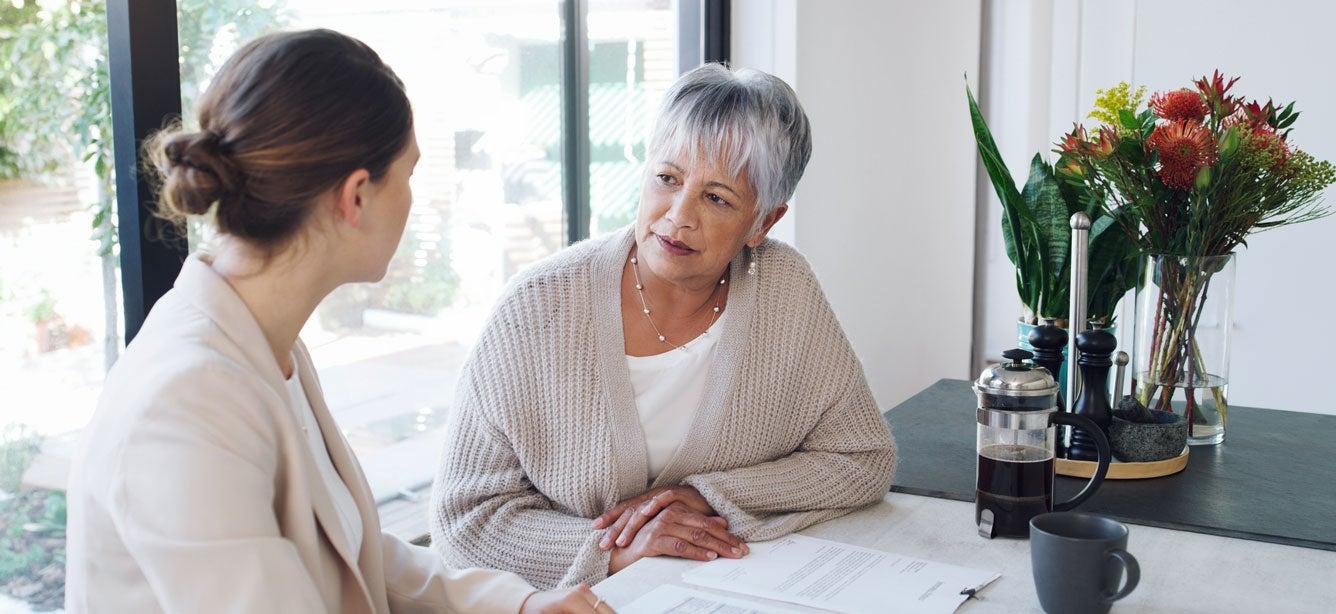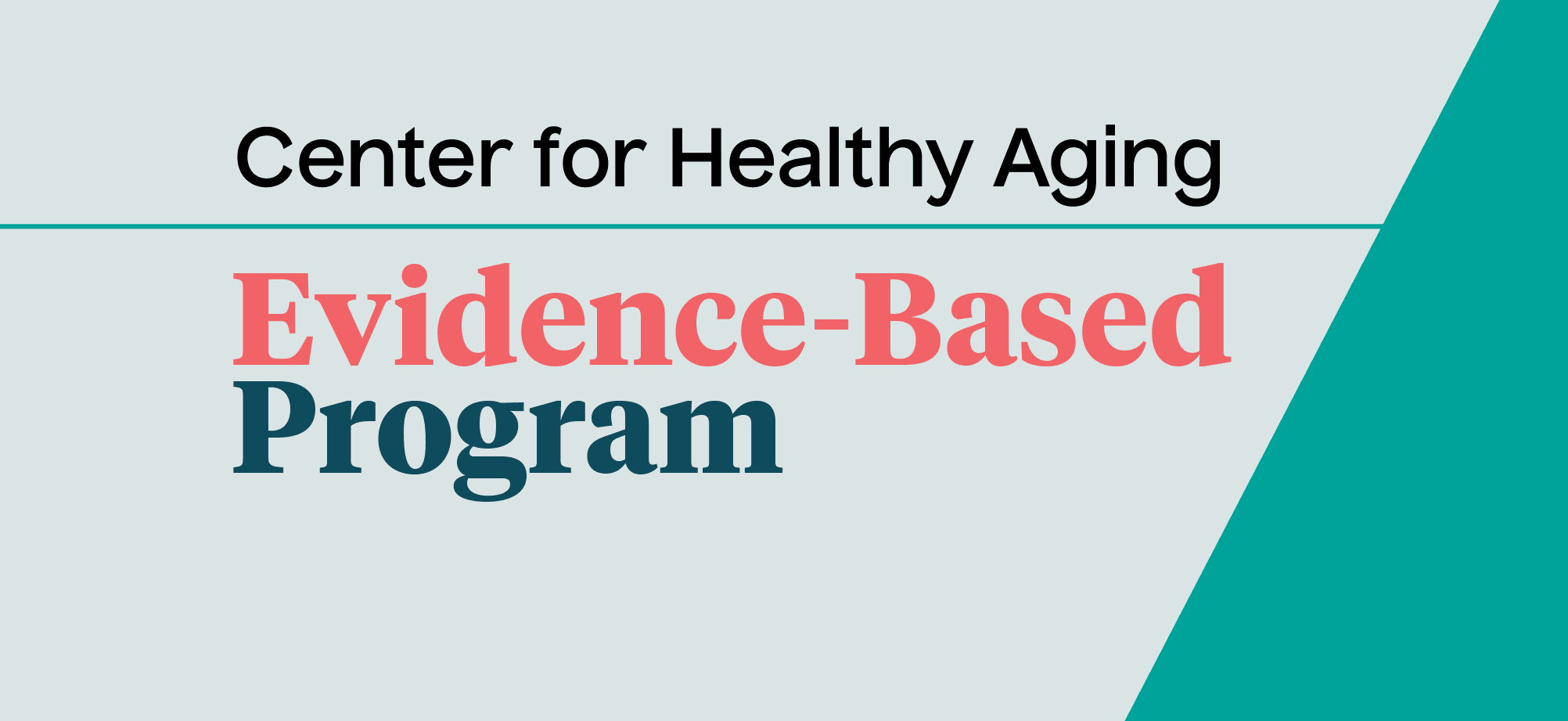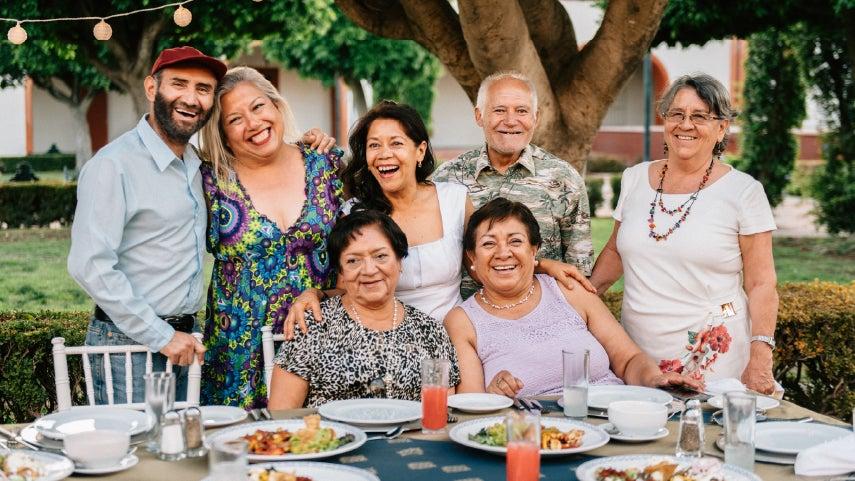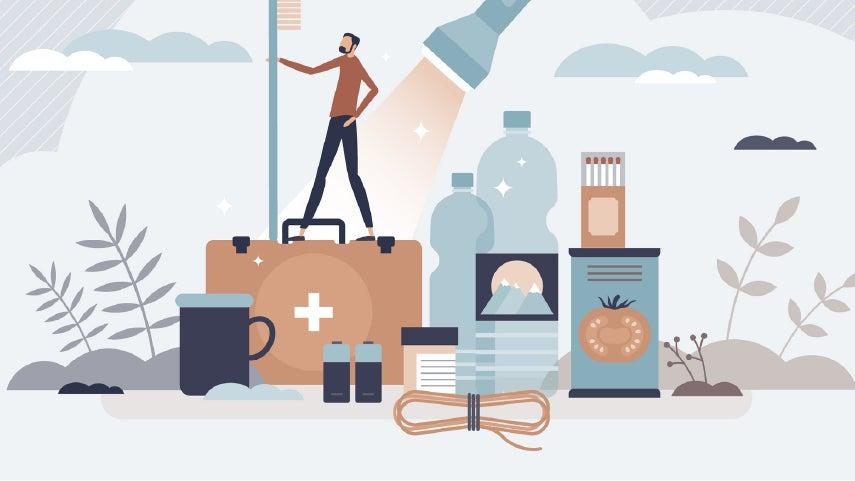How Evidence-Based Health Promotion Programs Can Support Adults with HIV/AIDS
8 min read

The experience of people diagnosed with and managing HIV/AIDS has changed dramatically over the last few decades. With a generation of individuals now aging with HIV/AIDS and managing symptoms and treatment as an ongoing health condition, aging network service providers need to think about how to leverage home and community-based services to address emerging needs and improve quality of life. Whether an individual has been managing HIV/AIDS since youth or are newly diagnosed, evidence-based chronic disease self-management education and falls prevention programs can complement clinical care.
There are several prevention challenges for older adults. Older adults have many of the same HIV risk factors as younger people such as lack of knowledge about HIV prevention or sexual risk, but there are some unique challenges that face older adults. They are less likely to discuss sexual or drug use behaviors with their doctor or be tested. Older people in the United States are more likely to have had HIV for longer before they are diagnosed compared to younger people. Additionally, older adults need to be aware about interactions between their medications used to treat HIV with medications to treat other chronic conditions.
What are evidence-based programs and how can they help adults aging with HIV/AIDS?
Evidence-based programs (EBPs) offer proven ways to promote health and prevent disease among older adults. They are based on research and provide documented health benefits, so you can be confident they work. Here are some evidence-based programs that can help serve older adults with HIV/AIDS more effectively in your community.
- Positive Self-Management Program for HIV: Chronic Disease Self-Management Programs (CDSMP), developed by the Self-Management Resource Center, are small group workshops for people with chronic disease and their caregivers. The 6-week interactive workshops are offered in community settings and online. They are facilitated by leaders with their own health challenges. The workshops focus on key aspects of managing multiple ongoing health conditions. As older adults with HIV are aging, it’s imperative to address the complexities of proactively managing their health on a long-term basis. The Positive Self-Management Program for HIV was developed as a specific version of CDSMP to address unique needs and stigma surrounding an HIV diagnosis and long-term management.
- EnhanceWellness: The EnhanceWellness program connects participants with a personal health and wellness coach to improve physical, emotional, and social well-being. Based on the Chronic Care Model, the programs’s participant-centered approach uses motivational interviewing techniques and validated assessment tools in fourteen domains to guide health action plan creation and accountability. This program provides a one-on-one solution for individuals that prefer not to participate in a group setting.
- Falls Prevention Programs: A focus on falls prevention is important for all of us as we age. Research has shown that the risk for falls may be higher among adults aging with HIV. Explore various falls prevention programs to address falls risk factors and fears of falls, as well as improve balance and strength.
- Programs that address various aspects of care: The complexities of managing HIV may increase with age. Programs like HomeMeds can provide medication review and reconciliation; PEARLS and HealthyIDEAS address behavioral health needs and symptoms of depression and anxiety; and programs related to caregiver support and care transitions can help navigate services related to medical and social needs.
Evidence-based program experiences from the field
From 2009-present, 228 participants have attended the Positive Self-Management Program for HIV, with 178 completers. Individuals with HIV may have also attended other version of the chronic disease self-management program, however HIV status is not collected as a part of the participant information survey.
As aging network providers are implementing evidence-based programs, there’s opportunity to explore how to best serve adults aging with HIV through partnerships with federally qualified health centers, community centers or health programs focused on serving adults aging with HIV, and health departments administering the Ryan White HIV/AIDS program.
Read the experiences below of Administration for Community Living (ACL) grantees that have implemented Chronic Disease Self-Management Education programs for participants with HIV/AIDS.
Council for Jewish Elderly (IL)
The Council for Jewish Elderly SeniorLife in Chicago, Illinois is a 2021 recipient of an ACL falls-prevention grant. Through this funding, they plan to implement three programs targeting older adults who are HIV+, low-income, minority, and/or LBGTQ in Chicago and New York City.
CJE is working with existing social service agencies that have direct contact with the target population. Part of their grant work will include: 1) Engaging a falls advisory steering committee consisting of experts and members of the HIV community; and 2) Recruiting and supporting partner staff and peer volunteers to become trained and lead falls prevention programs. They are conducting focus groups to gain insight into how to best market and deliver these programs in a culturally appropriate and inclusive manner. They plan to market the programs through direct service partners and in media, such as magazines and listservs, that cater to the HIV population.
Open Hand Atlanta (GA)
Open Hand Atlanta was founded in 1988 back in the early stages of the HIV epidemic. A group of friends began preparing and delivering meals to neighbors who were too sick to cook for themselves. What started as cooking a few meals in a church kitchen quickly grew to an AIDS Service Organization. In 2000, the mission expanded to include Seniors and those with other chronic conditions. However, individuals living with HIV/AIDS still account for one third of the clients are served each year. Themain service for people living with HIV/AIDS is the provision of home-delivered, medically tailored meals delivered by a fleet of drivers as well as over 15,000 volunteers. For those that are able to cook their own food, “market baskets” are provided, which contain shelf stable items along with a bag each of fresh fruits and vegetables which provides 14 meals a week. Nutritional supplements are provided for those that are in need of additional support and meals to dependents of the clients served living with HIV/AIDS. For clients who are waiting for their medical appointments, Open Hand Atlanta partners with an infectious disease clinic to provide snacks while they are waiting for long periods or in need of nutritional support to take medications during their wait. In 2020, over 291,798 meals were delivered to 539 people living with HIV/AIDS.
In addition to meal services, Open Hand Atlanta offers evidence-based nutrition education to people living with HIV/AIDS. A team of Registered Dietitian Nutritionists (RDN) provide Medical Nutrition Therapy (MNT) onsite at 5 clinical sites and via telehealth. During these appointments they can learn about how food choices affect their health and receive guidance and support in adopting healthy behaviors. These sessions are integrated with their health care services through communication between RDNs and the patient’s primary care provider. In 2020, the RDN’s provided over 700 hours of counseling and education to 180 patients despite the pandemic. Additionally, with grant funding Open Hand Atlanta was able to provide three Cooking Matters workshops where individuals learned how to read nutrition labels, shop on a budget, and prepare healthy recipes. Through Open Hand Atlanta's 2019 CDSME grant, trained leaders offer Chronic Disease Self-Management and have successfully engaged 3 cohorts of people living with HIV/AIDS through marketing and recruiting at the clinic sites.
Spectrum Generations (ME)
Healthy Living for ME (HL4ME) is a 2021 CDSME Integrated Networks grantee who will be implementing the Positive Self-Management Program (PSMP). HL4ME will work with health care entities to provide PSMP to at least 25 individuals with HIV+ or AIDS. A key partner, MaineGeneral Health’s Horizon Program, will help identify potential participants through their case managers. In early 2020, HL4ME hosted their first PSMP workshop in partnership with MaineGeneral. It was an in-person workshop with 9 participants and 6 completers (67% completion rate). HL4ME will also engage with SAGE Maine to bring awareness to the PSMP program. Currently, HL4ME has two PSMP Master Trainers and three community provider staff to deliver the program with plans to add additional providers as they move along in their grant.
Trainings and resources
- Report: Meeting the Needs of People Aging with HIV on the Path to Ending the HIV Pandemic
- Leveraging the Ryan White HIV/AIDS Program to Improve the Health of Older People Living With HIV
- Better Meeting the Needs of People Living with HIV is How to End the HIV Epidemic
- Visit Sage’s National Resource Center on LGBT Aging for on-demand trainings focused on cultural competence for serving LGBT elders.
- AIDS Education & Training Center Program- National Coordinating Resource Center
- Webinar: Meeting at the Crossroads of HIV & Aging
- Slide sets and reports from the Centers for Disease Control and Prevention (CDC)
Resources for public policy and action
- HIV & Aging Policy Action Coalition
- National Working Positive Coalition
- Partner with your local health department. Health departments in all 50 states receive CDC funding to support HIV surveillance and prevention efforts.
Helpful organizations and resource centers
- ACRIA
- AIDS United
- The AIDS Institute
- The American Academy of HIV Medicine
- amfAR
- CDC HIV Resource Library
- GMHC’s National Resource Center on HIV & Aging
- HIV.gov- Aging with HIV
- NASTAD
- National Institute on Aging- HIV- AIDS, and Older Adults
- NMAC
- O’Neill Institute for National and Global Health Law
- SAGE
Resources for evidence-based program implementation
- Evidence-Based Programs for Professionals
- Key Components of Evidence-Based Programs for Professionals
- Best Practices Clearinghouse: Resources from the Field
- Resources for Engaging Adults with Disabilities in Evidence-Based Programs
- Resource Guide: Remote Delivery of Evidence-based Programs
- Tip Sheet: Engaging Veterans in Evidence-Based Programs
- Tip Sheet: Increasing Completion of Chronic Disease Self-Management Education Workshops
This project was supported, in part by grant number 90CSSG0048 from the U.S. Administration for Community Living, Department of Health and Human Services, Washington, D.C. 20201. Grantees undertaking projects under government sponsorship are encouraged to express freely their findings and conclusions. Points of view or opinions do not, therefore, necessarily represent official Administration for Community Living policy.


